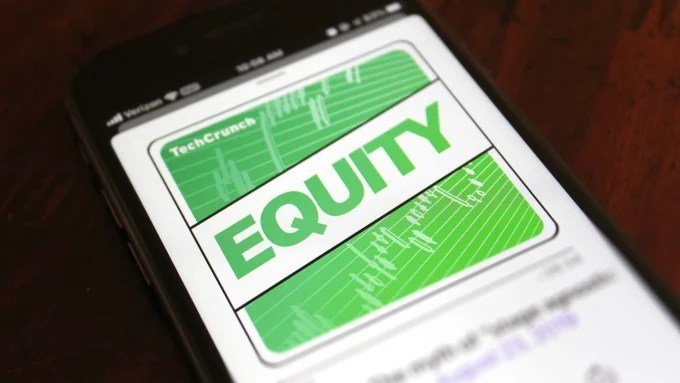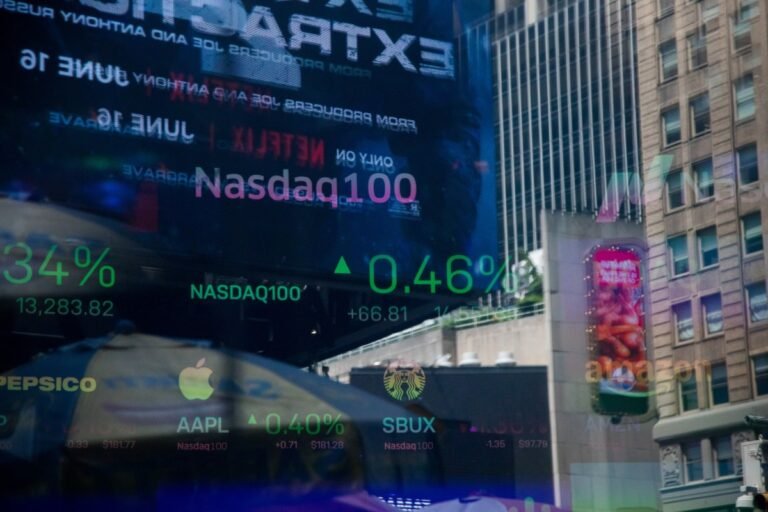
Who knew M&A would be the thing we couldn’t shut up about?
Listen here or wherever you get your podcasts.
Hello, and welcome back to Equity, the podcast about the business of startups, where we unpack the numbers and nuance behind the headlines.
This is our startup-focused, Wednesday episode, so today we’re counting down important venture rounds, and chatting our way through other startup and VC news.
Here’s what we got into:We’ll be digging into the Brex situation on Friday, so stay tuned for more about fintech soon!

After working together at Xerox Corp.’s corporate venture capital firm Xerox Ventures, Chris Fisher, Tim Chiang and Dean Mai form Myriad Venture Partners.
They secured $100 million in capital commitments for their first fund, which targets $200 million in total, Fisher told TechCrunch.
Fisher is the former senior vice president and chief strategy officer of Xerox and former founder and managing partner of Xerox Ventures, a firm started in 2021.
This is something he is already seeing happening at companies through R&D, expansion and spending across AI software, including ChatGPT.
“With Xerox Ventures as an internal firm, the ability to scale wasn’t there.

Like a tenacious balloon, no matter how hard crypto gets knocked down, it tends to float back up again.
I’ve found that to be true in all the years I have covered the decentralized market and economy since 2013.
After a lengthy downturn — a crypto winter, if you want — blockchains and their constituent tokens and services seem to be on a rebound.
Data paints the picture: Spot trading volumes reached a 12-month high earlier this month, the total value of crypto tokens has appreciated materially in recent months, and even NFTs are showing signs of life.
Yet, despite the run of positive news, venture capitalists’ interest in web3 startups continued to decline in Q4 2023, dipping further underneath a severely depressed third-quarter figure.

The deal would allow General Catalyst to tap deeper into India’s vibrant technology scene that has lured over $100 billion in startup investments since 2010.
The deal hasn’t finalized, so things may change, the sources cautioned, requesting anonymity as the deliberation is private.
The U.S. firm held conversations with many senior individuals in India last year looking to find an India-based partner, many people familiar with the matter said.
Its new focus on India follows the firm expanding in Europe last year by agreeing to merge with La Famiglia, an investor in several high-profile early-stage startups including AI firm Mistral.
Investing in India has proven uniquely challenging to many global venture firms that have entered the country or have explored such possibility, a partner at a India-based venture firm said.

Funding to Black founders was down in 2023 for the third year in a rowBlack founders in the U.S. raised 0.48% of all venture dollars allocated last year.
The past two years saw Black founders raising at least 1%.
Last year, though, suspicions were confirmed as the market cooling really did appear to have an extreme impact on the Black community.
In Q1’23 and Q2’23, Black founders raised 0.74%.
There’s been a consistent yearly decline in funding since the murder of George Floyd in 2020, which saw a record-breaking amount of capital flow to Black founders as the tech industry promised to better support them.

In this edition, I’m going to look at some hits and misses in the real estate fintech space, Carta’s missteps (again), and more!
A prominent customer accused Carta of misusing sensitive information that startups entrust to the company in pursuit of its own goals.
Meanwhile, Alex and Anna argued that Carta’s growth story is being overshadowed by its stock trading snafu.
Analysis of the weekThe real estate fintech space continues to have its ups and downs.
I also reported this week on Downpayments’ mission to help investors purchase new properties with interest-free down payments.

Last week, my colleague Aria Alamalhodaei wrote an exclusive on defense and space tech venture firm Countdown Capital’s plan to shut down.
But Countdown shutting down is likely more of an isolated event than a sign of what’s to come for micro funds this year.
That’s changed today, and it isn’t surprising given the sheer amount of capital it takes to get defense startups off the ground; the costs are incomparable to a category like SaaS.
This is also why Countdown’s fate doesn’t portend cloudy skies for micro funds in other categories.
So despite the category heating up, a $500,000 check can still net a firm meaningful ownership at the pre-seed stage, they said.

When it comes to startups’ flight to quality, have we swung too far in the other direction?
Hello, and welcome back to Equity, the podcast about the business of startups, where we unpack the numbers and nuance behind the headlines.
This is our new Saturday show, where we sit down with a guest, think about their work, and unpack the rest.
This week, we talked to Jenny Fielding, co-founder and managing partner at Everywhere Ventures, a founder collective and early-stage (think pre-seed) venture firm.
Jenny and I discussed a wide variety of topics, including startups’ flight to quality in 2024 and how smaller firms are competing with larger firms in the current investment landscape.

More than 100 companies are getting ready to list on Nasdaq after filing confidentially with the SEC, Nasdaq’s CEO Adena Friedman told investing publication Barron’s.
If that does come to happen, the IPO drought that the tech industry has suffered for months will draw to a close sooner than later.
The Exchange explores startups, markets and money.
Still we at least know about one company filing confidentially for an IPO: Circle.
We still have a few questions about the company’s finances, but this filing makes us more optimistic about its chances this time around.

Just how backed up are the venture capital markets today?
That’s what a recent data analysis indicates is happening today in one critical venture capital market.
The value of the most mature startups in the United States that need to find an exit neared the $1 trillion mark through Q3 2023, according to a recent PitchBook analysis.
The figure underscores how weak the exit climate has been over the last two years and highlights the sheer mass of illiquid equity investments made into startups that call the United States home.
Still, the United States’ venture capital market is worth about half of the global whole, so when we discuss Yankee territory, we’re nevertheless talking about a huge portion of the startup market.













